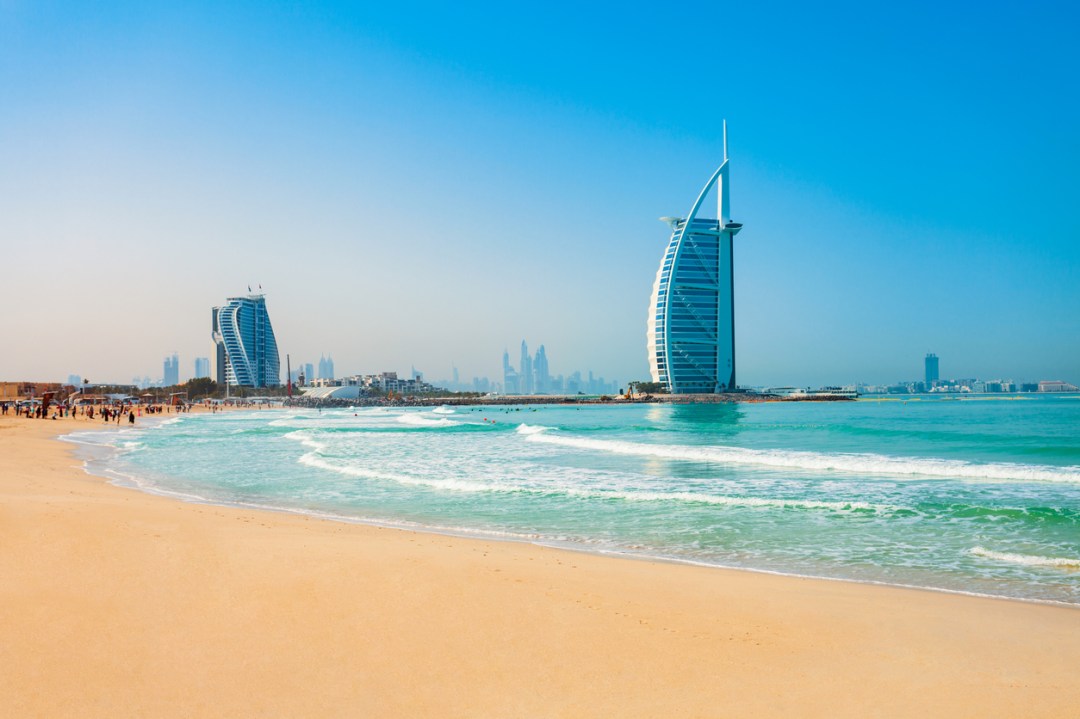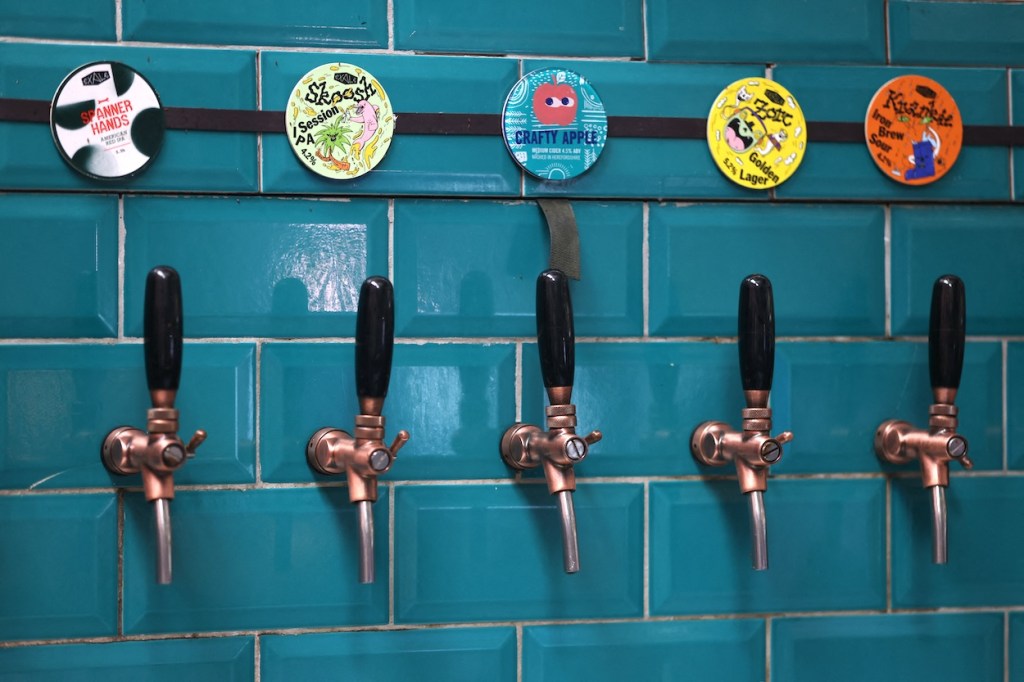Dubai is the new black: it’s everywhere and apparently for everyone. The steady trickle of first-person tell-alls about starting over in the Emirate has, since the Labour government moved in, built to a tsunami. ‘How I became a Labour school-fee exile in Dubai,’ written by Isabel Oakeshott, partner of Reform’s Richard Tice, was one that scored particularly highly among readers. ‘We moved from Aberdeen to Dubai – it is hugely expensive to have a family here,’ reads another headline. ‘Low tax might sound affordable, but life in the glitziest emirate is anything but cheap.’ James Vince, the cricketer, is another recent high-profile Brit to relocate there. No wonder international estate agents say that while the value of upscale London properties is plummeting, those in Dubai are soaring, to the tune of 147 per cent over the past five years.
And now WizzAir is launching no-frills flights to Dubai, reflecting demand so furious that people are willing to sit in its stiff seats without complimentary refreshments for eight hours to get there. Food Instagram is full of the viral ‘Dubai cup’ which sounds horrid but looks quite tasty: shredded fried bits of dough layered with strawberries, pistachio and chocolate cream.
But however grim Blighty feels just now, this is one trend that remains robustly unappealing to me for the simple reason that Dubai is absolutely horrible: with less fresh air and history in its entire vulgar sprawl than that of a single square metre in any English village.
Now let me be clear: I am not opposed to the vulgar, in food, relaxation or TV. I am sure I could have a lovely time in Cyprus or Miami, perhaps even Marbella. But Dubai? I did try. I went in with an open mind, and returned (despite the generosity of my hosts at the Dubai Tourism Authority) stunned by what a bum deal it all is.
I wanted to make sure I was experiencing the heart of its appeal: which seems to be a simulation of a big and important hot-weather city (a bit like Las Vegas). It’s beating heart is shopping malls, pool bars of the kind where you can drink on stools in the water, and expensive hotels and restaurants – all with a 1980s-style vision of fancy plus flourishes of Arab exotic desert. Dubai fans seem to be impressed by things that are the largest and tallest in the world – like malls (the Dubai Mall) and mixed-purpose skyscrapers (Burj Khalifa).
I cut no corners, securing accommodation in the biggest suite in the biggest, poshest hotel, the Burj Al Arab. This suite cost around £8,000 for the night. It was impressive in size – not far off a spacious office complex – with a spiral staircase, huge set of opulent sofas, a bar, a vast square marble tub and gilt mirror on the ceiling above the bed. It was big and it was bling. I did appreciate the view out to the wind-ruffled sea but noted that even in this pinnacle of accommodation it was impossible to avoid the sight of cranes and construction.
I glimpsed a mall or two; they were, like most malls, dark and soul-sapping, where you might imagine survivors to live after the apocalypse
I made sure on this trip to try to experience as much of new Dubai as possible. I didn’t go to any of the compounds where the Bangladeshi workers live, but I went to an innovation hub, the Alserkal arts district with its many boutiques and galleries and enthusiastic expats, and the ‘old town’ (most of which dates back to the 1950s). I glimpsed a mall or two; they were, like most malls, dark and soul-sapping, where you might imagine survivors to live after the apocalypse. From the air-conditioned sanctuary of the car I was riding in, I peered out at whatever streetscapes existed. Generally, the city is made up of motorways, glass and steel, some of it shabby and rusting. One afternoon I went into the dunes with lots of Germans for a gruelling imitation of desert life. The an Aussie demonstrating falconry, open Jeeps (noisy and polluting) and a torturous traditional dinner of camel meat. No booze, of course. I returned from Dubai completely uncharmed, unable to imagine relocating there, even when today’s Britain is so awkward, uncertain and menacing.
The truth is, Dubai’s whole city of the future vibe is basically empty: it’s where material third-ratery meets conceptual artificiality and lots of heavy marketing. High-rise dreamscapes only really work when they are American. Downtown Boston or New York genuinely feel like being in the centre of something, pulsing with greed and creativity, of being up against the most thrusting, imaginative and industrious bits of human nature.
Historically, cities that saw an influx of hungry expats (or refugees) trying to make their way have ended up soulful, interesting, beautiful in places: Tel Aviv, Vienna, Hong Kong, even Beijing or Shanghai. Dubai is like a dumbed-down version of those.
Finally, there is the question of human rights in the Emirates: those of the workers who come in to labour on cranes baking in the desert heat and those of anyone who dares to snog in public or be openly gay. Even the shoddy buildings and vulgar hotels could be looked on benignly if it weren’t for that side of things. Taken together, the stampede of Brits heading for Dubai says something either truly damning about Britain, about them or, more likely, about both.








Comments